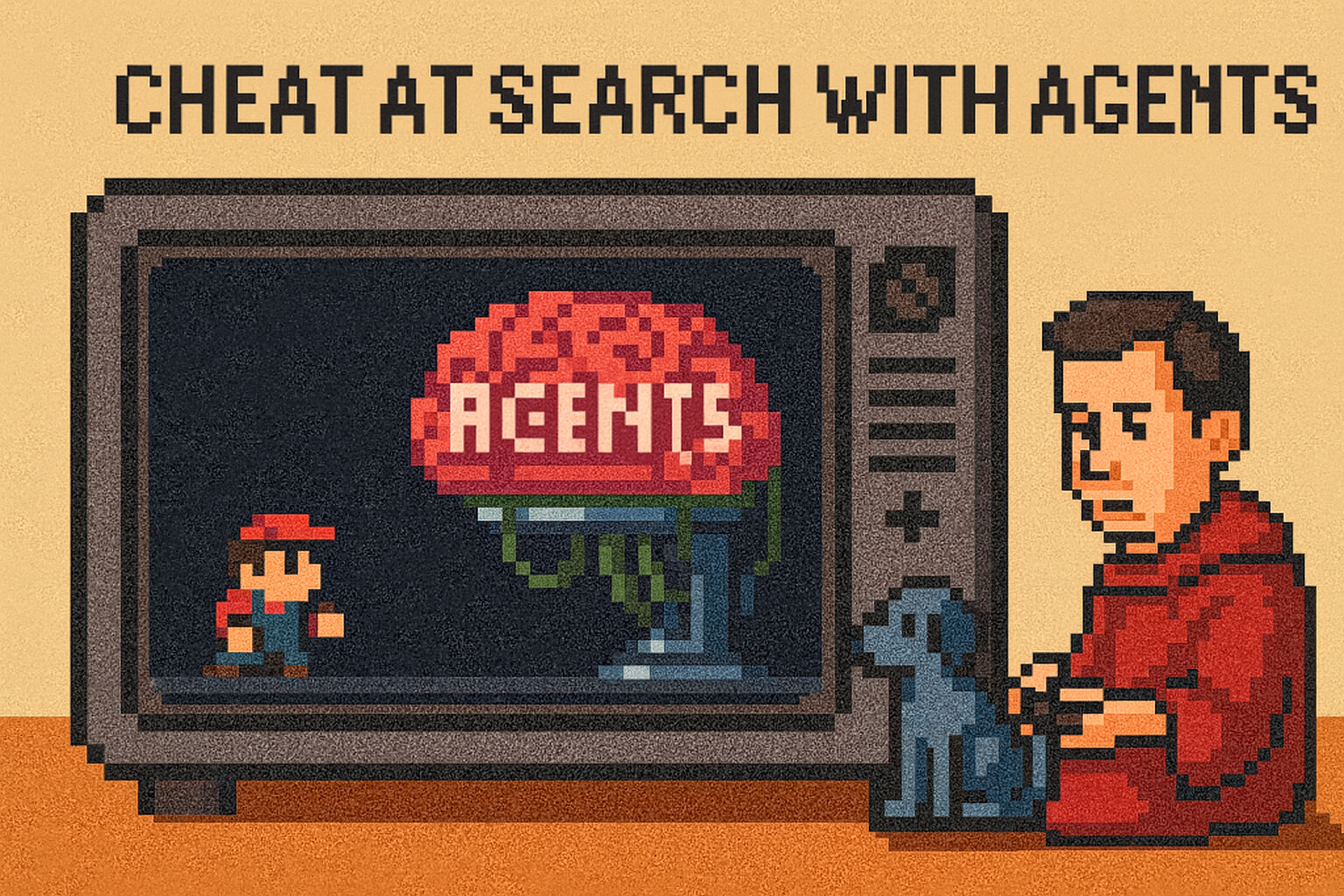As a teenager I lived by a pretty silly ethos: what dumb shit can I code to impress my friends?
In my day, this meant video games… Can I use DOS’s 2D graphics primitives to render something like the Windows Maze screensaver? Or dare I say Doom or Quake? While the teacher lectured us on linked lists, or something… we snickered as we made silly screensavers in the back.
Eventually, I got a job and a career. As a “grownup” I saw the different career ladders thrown up around me. I should focus on my impact, the higher-ups said. Deliver the project. Meet my metrics. So I can get that promotion or raise. While these days, I wear a hoodie and a conference T instead of suit and tie, the game of getting credit, impressing bosses, and avoiding blame hasn’t changed much.
You might feel this too.
You get wrapped up in this dumb game. You lose site of the craft, instead it becomes about silly externalities. Concerns like “will I get credit” or “can I avoid blame”. You worry if you can keep up with the cool, new, trendy thing (AI, blockchain, whatever) to continue to have a viable career.
Every 6 months, like the weather, some new drama threatens to derail you. A new senior peer comes in ready to shit all over your work. You hear a rumor of your department getting outsourced. A new project threatens to make your work area obsolete. A reorg. A management shakeup. A deferred promotion. Layoffs.
These things become all consuming. We obsess about our status, our ability to get promoted, a raise. We want to get to the next level in our lucrative career. Everything becomes about our the organization, and little to do with that thrill we felt doing idiotic things with friends in a computer lab.
I am learning, as I age, this weather is out of our control. All things are temporary.
More and more I remember the importance of staying true to the ethos of “coding dumb shit to impress your friends”.
First and foremost because, I personally, would be coding even if it was not economically viable. It’s what I do. I’d still be out tinkering in my woodshed even if AI made all software jobs obsolete. To me it’s irrelevant. I love programming. I was into it before it was cool 😎. And I won’t let anything get in the way of that - especially dumb status chasing. Demote me, whatever, I don’t care. I just want to code.
Second, as you age, your smartest, craft-loving friends focus on the deeper software problems. So “impressing them” sometimes has the knock-on effect of often being lucrative or at least groundbreaking. Entire business ideas and industry shaking paradigm shifts come from impressing a handful of close friends.
Why? Close friends aren’t wrapped up in some internal pyramid-scheme kayfabe of chasing status. Trying to impress your boss means laddering-up to a bazillion dumb organizational incentives, and get you wrapped up in the status chasing that convinces you your idea is actually silly / not worth investing in. Try convincing Google in 2021 that what we really should do is throw away search and build a chatbot capable of synthesizing all human information.
The same can be true in the world of venture capital - investors chasing the last trend, and you can end up in a completely different game of trying to impress the wrong people. Having a startup just to have a startup, not because you actually believe in leading in a problem space.
But when you fly under the radar, slowly chipping away, chatting with your friends. Having spirited debates. Supporting each other - you can actually make change. You can test your convictions, and begin to have courage+support to assert an unpopular position in the marketplace. All while not outlaying some massive investment to acquire VC funding or organizational goodwill.
These little convinctions amongst friends make change. The belief shared between the people actually doing the work - away from the emperor has no clothes world of VC funding or internal company status changing.
But if it doesn’t? Who cares, we built something freaking cool. In the grand scheme of things, you might be happier impressing 3 other people then building a trillion dollar company.
Enjoy softwaredoug in training course form!
Starting Feb 2!
 I hope you join me at Cheat at Search with LLMs to learn how to apply LLMs to search applications. Check out this post for a sneak preview.
I hope you join me at Cheat at Search with LLMs to learn how to apply LLMs to search applications. Check out this post for a sneak preview.
